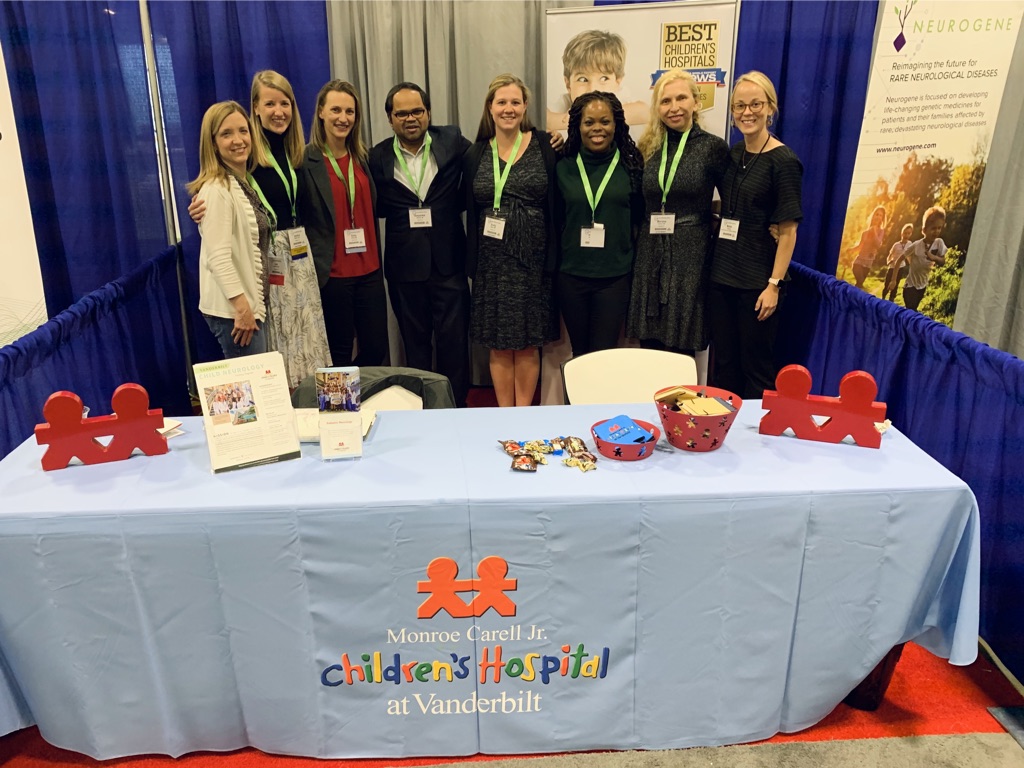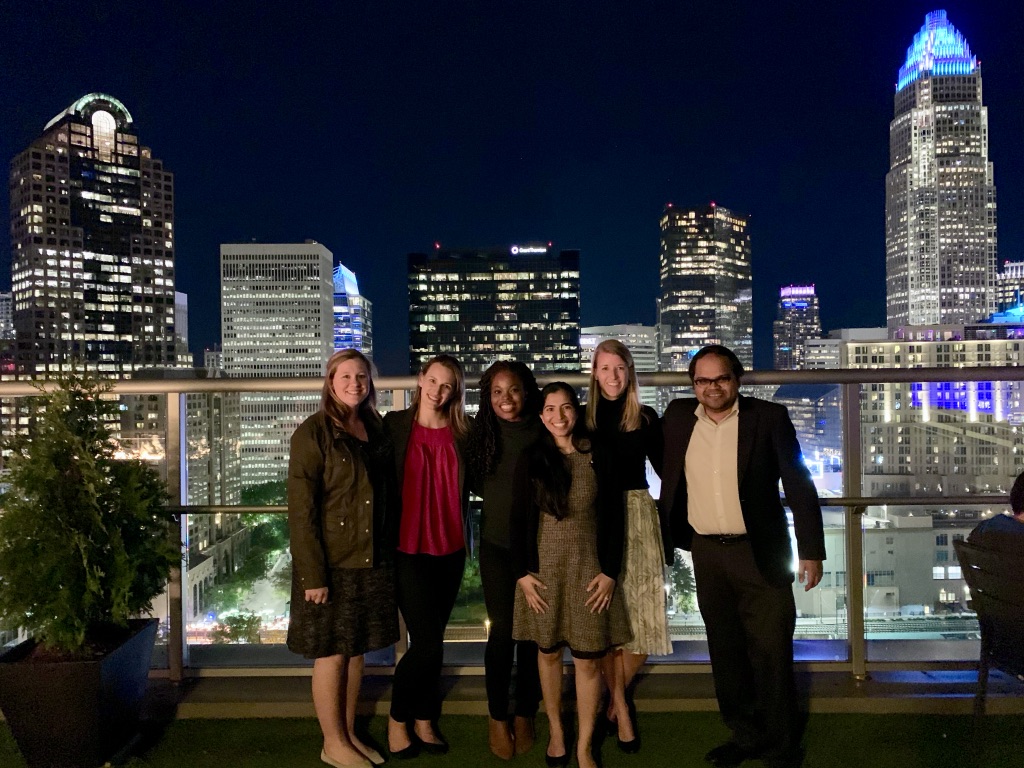Pediatric Neurology Noon Conference Series
All Pediatric Neurology residents attend lunch conferences three times per week that are led by various attendings within Neurology and other subspecialties (e.g., Neurosurgery, Developmental Medicine, Palliative Care, Radiology, Pathology, Psychiatry, Rheumatology) to cover a variety of neurologic topics. In June and July each year, there is a Bootcamp Series focused at highlighting common Pediatric Neurology patient presentations and diagnoses, reviewing our clinical practice guidelines, and orienting everyone to the many educational tools and resources available. Journal club, Resident-Led Initiative sessions, flipped classroom Neuroanatomy lectures, and resident-led Case Presentations are also scheduled as part of the noon conference series. Additionally, nonmedical topics covered include research, career development, professionalism, and wellness. Key topics of the curriculum are cycled through an 18-month rotation so that all topics are covered twice over a resident's three years of training. Lunch is provided at all conferences.

Adult Neurology Noon Conference Series
Pediatric Neurology residents attend these daily lunch lectures when there are no scheduled Pediatric Neurology lectures. These also cycle through an 18-month neurology curriculum such that all topics are covered twice over a resident's three years of training. Lunch is provided at these lectures as well. Please visit the Adult Neurology Residency website for more information.
Multidisciplinary Epilepsy Surgery Conference
Pediatric Neurology residents are invited to attend a weekly conference during which a multidisciplinary team of attendings and residents to include epilepsy, neurosurgery, neuroradiology, neuropsychology, as well as epilepsy coordinators, discuss patients with intractable epilepsy and make recommendations regarding potential surgical management. Residents present their own patients when applicable, with the assistance of the fellows and faculty involved in the case. Adult epilepsy surgery conference is also an available learning experience, and this occurs every other week.

Pediatric Neurovascular Conference
Pediatric Neurology residents may also attend a bi-monthly conference during which a multidisciplinary group of attendings and residents: pediatric stroke, neurointerventional radiology, pediatric neurocritical care, pediatric neuroradiology, and pediatric neurosurgery discuss pediatric neurovascular patients with issues such arteriovenous malformations, aneurysms, or strokes and make recommendations regarding management. Residents can present patients they are following or inpatient cases. Adult neurovascular conference is also an available learning experience.
Pediatric Neurocritical Care Series
This conference is every other month and features both internal and external speakers in the pediatric neurocritical care field from a wide variety of specialties, to include neurology, critical care, neurosurgery, PM&R, rheumatology, infectious disease, and more. Attendees include critical care fellows and faculty, and neurology residents and faculty.
Pediatric and Adult Neurology Grand Rounds
Pediatric Neurology residents attend both Pediatric and Adult Neurology Grand Rounds weekly. Both include a range of topics from clinical to basic science research as well as both internal and external speakers.
Neuroradiology Conference
Pediatric Neurology residents are encouraged to attend a weekly Neuroradiology lecture where attendings and residents bring current inpatient cases to discuss with one of the Neuroradiology attendings. Once per month, there is a Pediatric Neuroradiology conference with the Pediatric Neuroradiologists. These conferences are a favorite!
And More!
VUMC has innumerable educational opportunities, including the Multidisciplinary Neurooncology Tumor Board, Medical Center and VU School of Medicine-wide educator development grand rounds, lectures and workshops, and many more. There are also a number of longitudinal experiences available through the Medical Center with a variety of focus points.